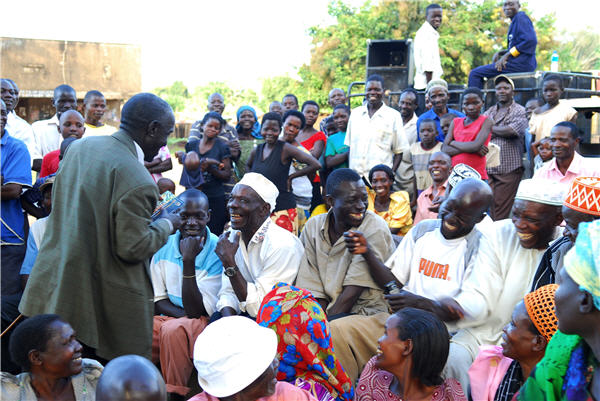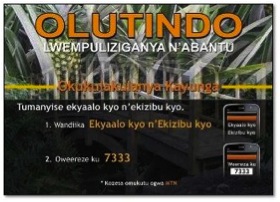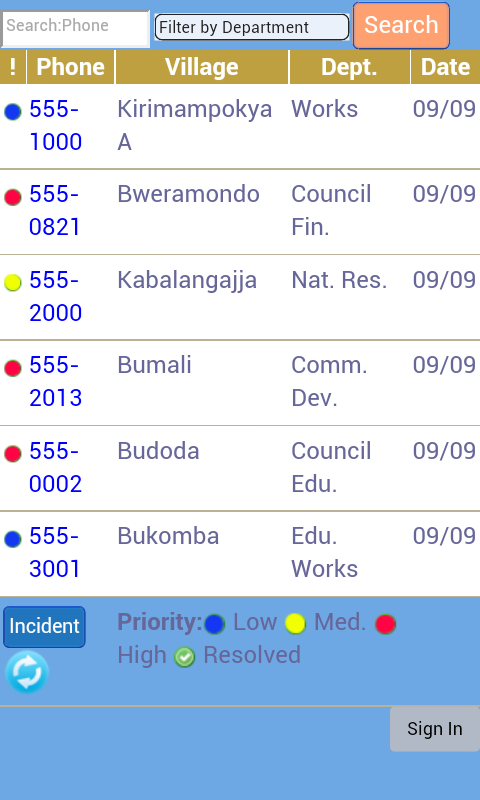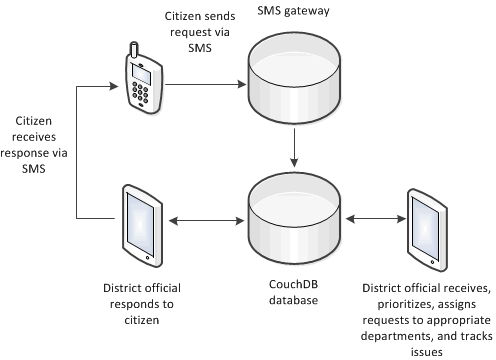Connecting Citizens

Local governments in Uganda struggle to provide basic public services for their citizens, particularly in rural communities. Causes include unreliable coverage results from low funding levels, inadequate information on needs, and corruption. Additionally, many citizens in remote communities also have no established or reliable means of communication with local government officials. Therefore, there is no defined process for citizens to submit service delivery requests to their local governments, and governments have no reliable information on where specific issues are taking place.
SOLUTION
RTI International developed the open-sourced Olutindo (Luganda for “bridge”) software application. Olutindo is a short message service (SMS)-based service request system that provides citizens and local government (LG) officials with a tool to submit, track, and respond to service delivery requests. On December 12, 2011, officials in Kayunga District launched the pilot of Olutindo in Kitimbwe sub-county, enabling citizens to notify District officials of concerns with public services in health, education, or public works through SMS text messaging.
Citizens can use any mobile phone to send an SMS with their location (village, clinic, school) and problem or message to a certain SMS number. This creates a "trouble ticket" that is routed to the appropriate district official (for example, the health, education, or works officer). The district official will acknowledge the ticket and send updates to the original sender as the problem is resolved.
Flier distributed at Oluntindo launch in 2011

HOW IT WORKS
District technical officers are equipped with 3G devices that enable communications about a problem even when the official is away from the office. When the software is running on the tablet, the main Oluntindo screen displays a searchable listing of incoming trouble tickets:

Clicking a record in the listing displays a detailed view of the citizen's request:

Incoming requests are reviewed by a district official, who may identify the village, assign each ticket to the appropriate district department, and assign a priority. District officials may send SMS communications to the citizen directly from the Oluntindo. The software includes displays that enable district officials to monitor the status of requests and request trends. The following is a simplified diagram of the system.

RESULTS
In Kayunga, RTI found that improved communications reduced mistrust between government officials and citizens, created a more accountable environment for service delivery, and enabled district officials to quickly respond to service issues – particularly where issues did not require financial resources, such as absenteeism in health facilities and schools.
Key challenges included securing funding for the full cost of ongoing charges for tablet airtime, short-code SMS licensing fees, and hosting services, as well as providing adequate on-site technical support for the application.
Due to funding constraints, Olutindo was discontinued in 2012 following the conclusion of the pilot period. However, as part of the USAID/Uganda Governance, Accountability, Participation and Performance (GAPP) program is reinstating Olutindo in Kayunga district and expanding the service to Arua district. Due to the number of local languages present in Uganda, the GAPP team has re-branded Olutindo as U-Bridge to ensure that the application is understood across the multiple language groups across Uganda.
To complement the U-Bridge application, the GAPP technical team will deliver quarterly trainings and workshops to district officials and communities that will consist of the roles and responsibilities of both local government and citizens in providing public services, effective strategies for communicating, and group discussions on the successes and challenges of using U-Bridge.
For questions about this project, please contact Claire Gowen (cgowen@rti.org).
PARTNERS
Alongside RTI International, the scale-up and further evaluation of Oluntindo is being sponsored by:
- USAID/Uganda Governance, Accountability, Participation and Performance (GAPP)
- Local Government Finance Commission, (LGFC)
- Ministry of Local Government (MoLG)
- Ministry of Finance
- Planning and Economic Development
- Uganda Local Government Association (ULGA)
RELATED TECHNOLOGIES
- Login to post comments
- Printer-friendly version
 PDF version
PDF version

